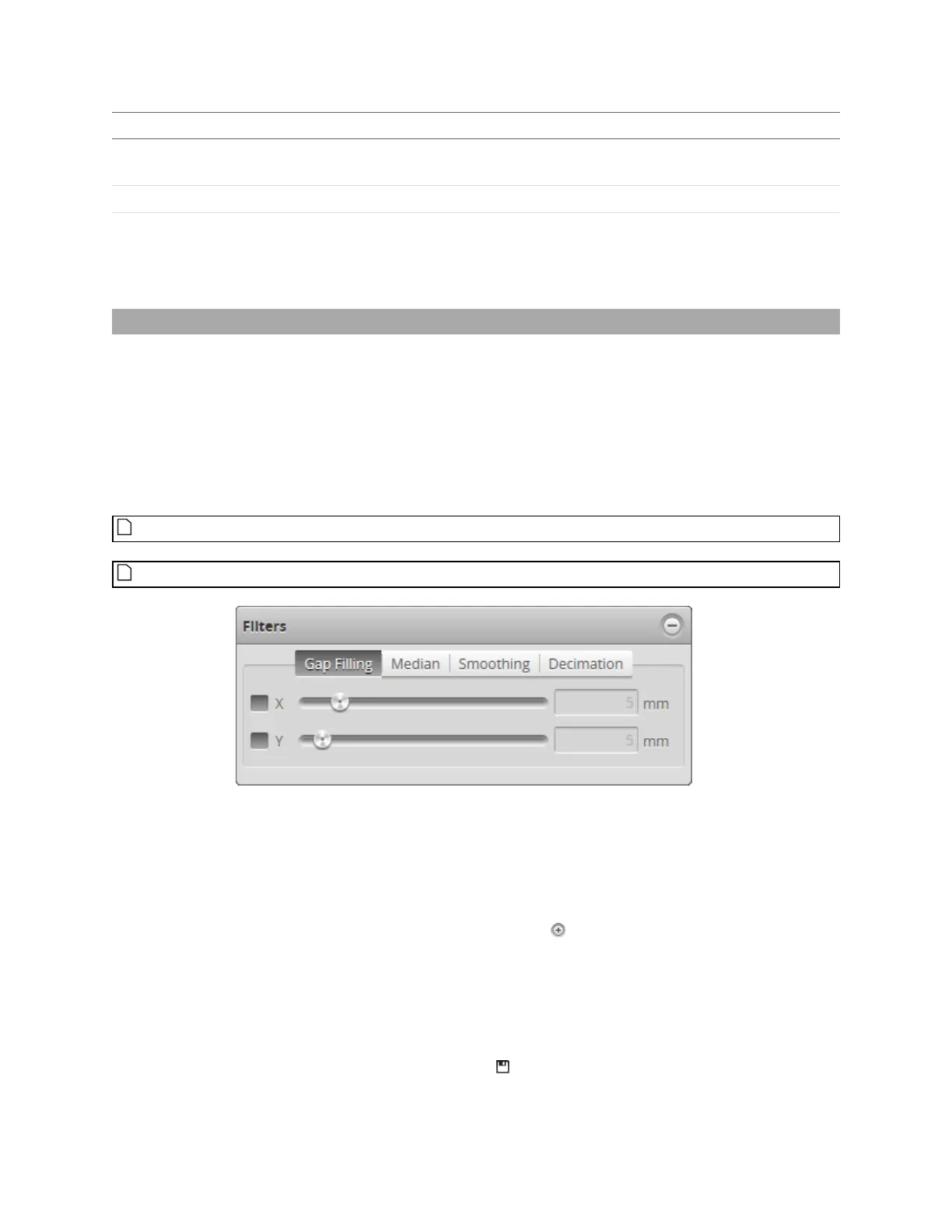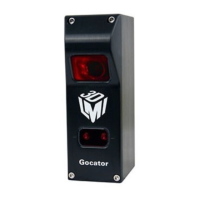Gocator Line Profile Sensors: User Manual
Gocator Web Interface • 131
Filter Description
Median Substitutes the value of a data point with the median within a specified window around
the data point.
Smoothing Applies moving window averaging to reduce random noise.
Decimation Reduces the number of data points.
Filters are applied in the order displayed in the table above. The filters are configured in the Filters panel
on the Scan page.
Gap Filling
Gap filling works by filling in missing data points using either the lowest values from the nearest
neighbors or linear interpolation between neighboring values (depending on the Z difference between
neighboring values), in a specified Xor Ywindow. The sensor can fill gaps along both the X axis and the Y
axis. X gap filling works by filling in the gaps within the same profile. Y gap filling works by filling in gaps in
the direction of travel at each X location.
If both X and Y gap filling are enabled, missing data is filled along the X and Yaxes at the same time, using
the available neighboring data.
In Profile mode, Gap Filling is limited to the Xaxis. (The Y setting is not available.)
X Gap Filling is enabled by default
To configure X or Ygap filling:
1. Go to the Scan page.
2. Choose Profile or Surface mode in the Scan Mode panel.
If one of these modes is not selected, you will not be able to configure gap filling.
3. Expand the Filters panel by clicking on the panel header or the button.
4. Click on the Gap Filling tab.
5. Enable the X or Y setting and select the maximum width value.
The value represents the maximum gap width that the Gocator will fill. Gaps wider than the maximum
width will not be filled.
6. Save the job in the Toolbar by clicking the Save button .
7. Check that the laser profiling is satisfactory.
